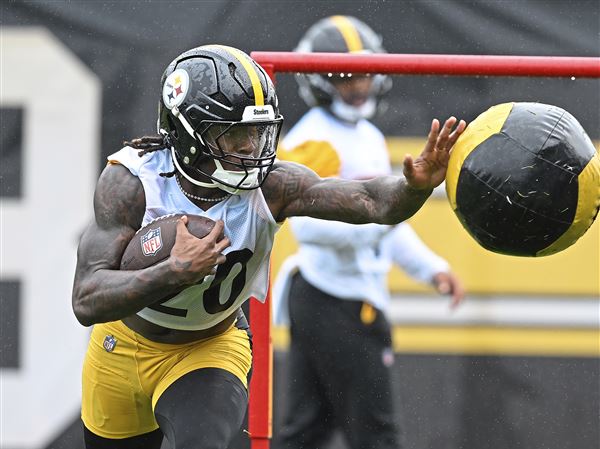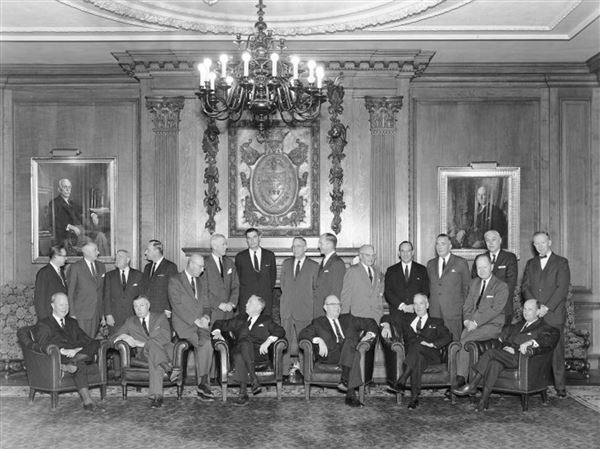Click here to submit your question
Question: As the talk of the Pens being the next Edmonton Oilers-type dynasty has quickly faded, do you see any team being able to sustain one with the salary-cap system in place?
Jason Fisher, Spring Hill, Fla.
MOLINARI: Assembling a true dynasty in this era might go down as one of the most remarkable feats in NHL history, assuming any club actually manages to pull it off, because the cap system is pretty much guaranteed to sabotage the long-term prospects of a team that has success.
When a team wins a championship, its members expect to be compensated for their contribution the next time they're up for a contract. When enough key players are looking for raises, management must decide whether to allow one core player (or more) to leave because another club will offer him a more lucrative deal, or whether to save the money needed to keep the nucleus of its lineup happy by bringing in a supporting cast that costs less than the players who filled those roles during the championship run did.
In the case of the Penguins, they have opted to keep their core of young talent together, and to sacrifice role players like Jarkko Ruutu, Adam Hall and Georges Laraque, among others. (The former two were allowed to leave because the Penguins didn't want to commit to more than two years on a contract to either, not necessarily because of the money they were seeking.)
While it's possible to draw parallels between the Penguins' core talent and those who made up the foundation of the Oilers' Cup-winning teams -- although it is premature, at best, to suggest that the Penguins in question are the equals of their counterparts on those Oilers clubs -- it will be a fiscal impossibility for the Penguins to maintain the caliber of depth Edmonton had while earning five championships between 1984 and 1990.
Because Washington has an outstanding collection of young talent, there is a temptation to say that the Capitals might be able to take a run at a few championships in a short period of time. However, they already are up against the cap ceiling and, in addition to having a number of veteran contributors who will be unrestricted free agents this summer, will have to try to find a way to hold onto Nicklas Backstrom and Alexander Semin after their contracts expire at the end of next season.
Bottom line: If people want to watch a dynasty in the NHL, they should plan on renting a DVD of those Oilers, the New York Islanders (four Cups from 1980-93) or Montreal (four Cups from 1976-79).
Question: Since Ray Shero is known not to make big moves unless it will help the team in the long run, what moves do you think he will make before the trading deadline?
Craig Lester, Calgary, Alberta, Canada.
MOLINARI: While Shero's philosophy is pretty much the way you describe it, it should not be forgotten that he brought in Marian Hossa at the trade deadline last season, fully aware that Hossa might not be around for more than a few months. That kind of short-term move doesn't mesh with Shero's usual approach to team-building, but makes the point that he's willing to negotiate that kind of trade if he believes the potential payoff is worth it.
At this point, however, it seems unlikely that Shero will not look to make a similar deal before the March 4 deadline (although it's worth noting that he doesn't make a habit of sharing his personnel plans with reporters.) The Penguins, as currently constituted, do not look to be just a player or two away from making a serious run at the Stanley Cup, which is their ultimate objective.
Even if they manage to get healthy and stay that way, something that hasn't happened yet this season, they don't have the depth and supporting cast needed for an extended playoff run. If they qualify for the playoffs, which is far from certain at this point, their core players make the Penguins the kind of team no opponent will want to face in a best-of-seven, but not one likely to string together victories in more than a series or two.
For that reason, the thinking here is that Shero will put off any high-impact moves -- particularly one to land a goal-scoring winger to play alongside Sidney Crosby -- until the offseason, although he might look to add a little grit and muscle by the deadline, just to make the Penguins a bit tougher to play against.
First Published: January 26, 2009, 5:00 a.m.













